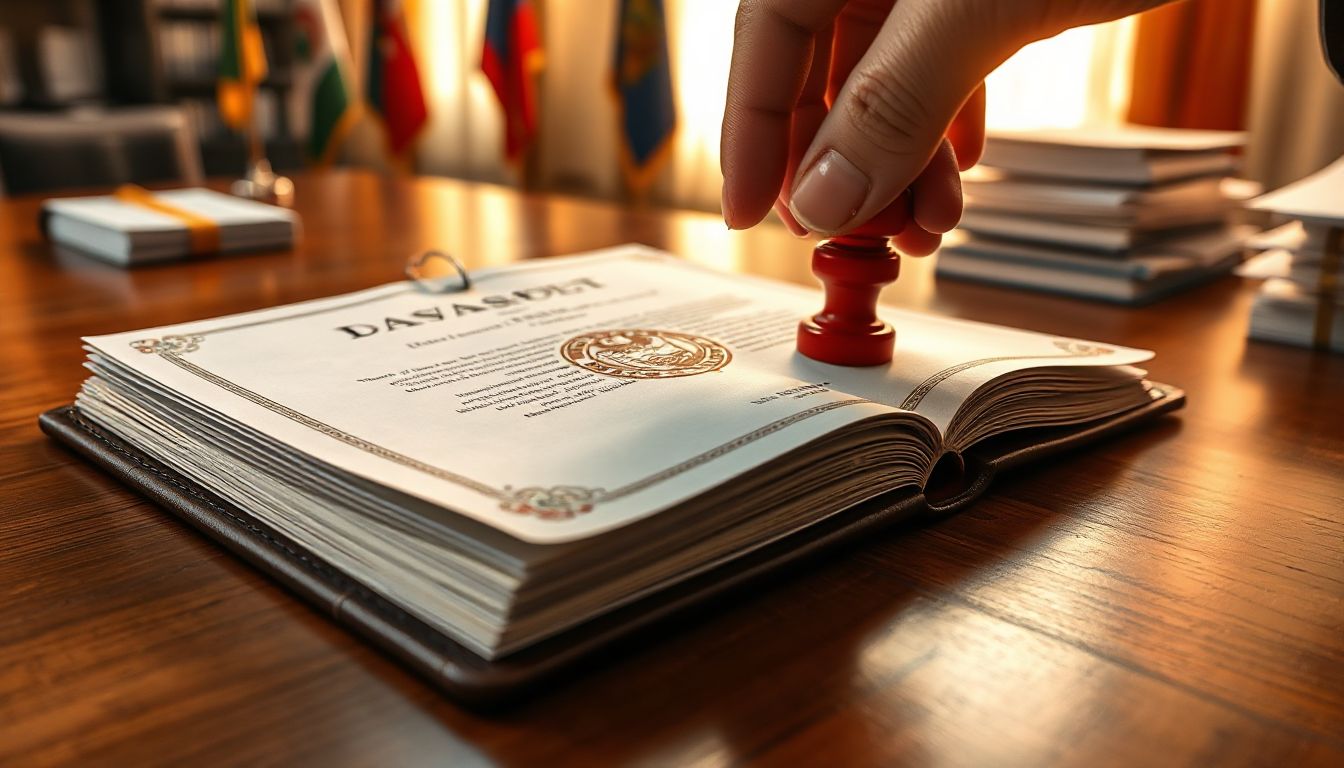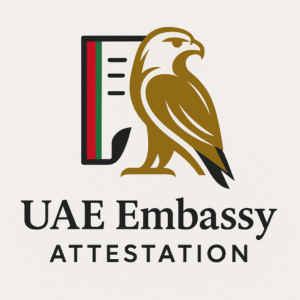Educational Certificate Embassy Attestation: Everything You Need to Know
Imagine this: You’ve just landed your dream spot at a university in Canada. Excitement builds as you pack your bags. But then, visa officials reject your application because your degree certificate lacks the proper stamps. Weeks turn into months of delays. Frustration hits hard, and your plans stall.
This nightmare happens too often. Embassy attestation for educational certificates fixes that. It proves your documents are real for use abroad. Countries demand it to stop fraud in visas, jobs, and studies. Think of it as a passport for your papers—they need approval to travel.
In this guide, we’ll break it down. First, we’ll define what embassy attestation means for school papers. Next, we’ll walk through the steps to get it done. Then, we’ll cover why you need it for study, work, or moving overseas. We’ll tackle common problems and share tips to make it smooth. By the end, you’ll know how to handle educational certificate embassy attestation like a pro.
What Is Educational Certificate Embassy Attestation?
Embassy attestation turns your school documents into trusted proof for foreign use. It differs from basic checks because it involves multiple government layers. This process confirms your degree or diploma is legit. Newcomers often wonder: Why go through all this? It ensures your qualifications hold weight across borders.
The goal stays simple. You verify authenticity step by step. Without it, foreign offices might toss your files. For students or workers, that means lost chances. Always start with fresh info to avoid mix-ups.
Definition and Purpose of Embassy Attestation
Attestation means an embassy stamps your document to say it’s genuine. For educational certificates, this covers degrees, marksheets, and more. The embassy of the country where you’ll use it does the final seal.
This certification follows global rules. Many nations sign treaties to accept these stamps. It prevents fake papers from slipping through. Picture it like a bouncer at a club—only real invites get in.
In places like the UAE or Saudi Arabia, laws require this for official work. It links back to your home country’s education board. Without it, your hard-earned degree sits useless abroad.
Types of Educational Certificates Requiring Attestation
Several school papers need this treatment. Bachelor’s degrees top the list. Master’s diplomas follow close behind. Transcripts and school leaving certificates count too.
Check your target country’s embassy site first. Some spots skip certain papers. This saves time and cash on unneeded steps.
Why It’s Essential for International Use
Unattested documents lead to big headaches. Universities abroad reject apps without proof. Jobs in tech or medicine demand verified skills. Immigration offices flag anything suspicious.
Take a job hunt in Australia. Employers skip resumes with plain copies. Attestation builds trust fast. It shows you mean business.
Tip: Stick to originals or certified duplicates. Copies without seals often fail. This keeps your files intact and ready.
The Step-by-Step Process for Embassy Attestation
We’ll list the steps clearly. Follow them in order. Use pros if paperwork overwhelms you. This path opens doors worldwide.
Step 1: Notarization at the Source
Start local. A public notary in your home country checks your certificate first. They swear it’s a true copy or original.
Bring ID and the paper. Notaries stamp and sign it. This base layer proves it’s from you.
Tip: Book ahead. Lines form quick. Make extra copies now—it helps later.
Step 2: State Home Department or HRD Authentication
Next, head to your state’s education office or HRD ministry. They verify the notary’s work against school records.
In India, rules differ by state. Pick the one where your school sits. They add their official seal.
Expect a few days wait. Fees run low, around $10 to $20. Double-check jurisdiction to skip re-dos.
Step 3: Ministry of External Affairs (MEA) Attestation
Now, send it to the national level. The MEA in your capital stamps for the whole country.
Submit in person or by mail. They review prior steps. Processing takes one to two weeks.
Tip: Hire agents approved by MEA. They speed things up. Pay per page—costs add quick.
Step 4: Embassy or Consular Attestation
The big finish. Your destination country’s embassy adds their mark. This says they trust the chain.
Book slots online. Bring passport copies and fees. Waits can hit a month in busy seasons.
Tip: Watch appointment calendars. Prep extras like photos. Delays drop if you’re ready.
Why Do You Need Embassy Attestation for Educational Certificates?
This process isn’t just red tape. It unlocks global paths. More people study or work abroad each year. Stats show over 5 million students move yearly, per UNESCO. Attestation fits that trend.
Urgency builds when deadlines loom. Skip it, and dreams fade. Some countries let you rush it for a fee. Know your spot’s rules to decide.
For Studying Abroad
Schools in the US, UK, or Canada want attested papers. They check degrees for admission. Without it, your spot vanishes.
Visa apps tie in too. Embassies scan for fakes. Attested files sail through.
Tip: Look at US State Department sites. Match steps to your timeline. Start months early.
For Employment Opportunities Overseas
Jobs abroad crave proof. IT firms in Germany or hospitals in Qatar need verified degrees. Work visas hinge on this.
Employers save time with stamped papers. It cuts hiring risks.
Tip: Team it with WES evaluations. They translate and grade for quick nods from bosses.
For Immigration and Residency Purposes
Moving families? Permanent residency apps demand attestation. Countries like Australia use it for points systems.
It proves your skills for settlement. Skip it, and apps stall.
Tip: Talk to lawyers soon. For Hague countries, apostille might work instead. Saves steps there.
Common Challenges and How to Overcome Them
Hurdles pop up often. Rejections sting, but fixes exist. Focus on prep to dodge most. Pros share tricks that work every time.
Stay calm. Each issue has a workaround. Learn from others to speed your way.
Document Eligibility and Rejection Issues
Papers get bounced for small errors. Faded ink or wrong names cause trouble. Old certificates without fresh seals fail too.
Issuing schools must match details. Mismatches lead to denials.
Tip: Cross-check with original records. Fix typos before you start. This cuts waste.
Time Delays and Processing Fees
Steps drag on. Each layer adds 15 to 30 days. Holidays slow it more. Costs pile up—$50 to $200 total.
Rush options exist, but they cost extra.
Tip: Pick certified agencies for half the wait. Track fees upfront to budget right.
Country-Specific Variations
Rules shift by place. EU nations often use apostille. Middle East sticks to full attestation.
Outdated guides mislead. Changes happen fast.
Tip: Hit embassy websites for fresh info. Avoid old forums—they trip you up.
Tips for Successful Educational Certificate Attestation
Nail this with smart moves. Prep beats panic every time. Experts swear by these habits.
Act now. Gather what you need. Pros make it painless.
Preparing Your Documents in Advance
Collect IDs, photos, and apps early. Originals lead the pack. Copies back them up.
Scan everything digital. Store safe for easy access.
Tip: Label files clear. This speeds resends if lost.
Choosing Reliable Attestation Services
Pick firms with good reps. Read reviews on trust sites. Check MEA ties or embassy nods.
Avoid cheap scams. They botch jobs.
Tip: Ask for past client stories. Endorsed ones deliver sure.
Tracking and Following Up on Your Application
Get tracking codes at each step. Set phone alerts for updates.
Email providers often. Stay in the loop.
Tip: Log calls and mails. Proof helps if issues rise.
Conclusion
Embassy attestation for educational certificates paves the way to new starts. From notary seals to embassy stamps, each step verifies your path. It guards against fakes and opens study, job, or move doors abroad.
Key points: Grasp types like degrees and transcripts. Follow the four steps carefully. Know needs for your country—study visas, work permits, or residency. Watch for delays, but use tips to push through.
Start early. Check embassy sites for rules. Grab pro help to skip traps. Your future waits—contact local services today and get those papers attested.



